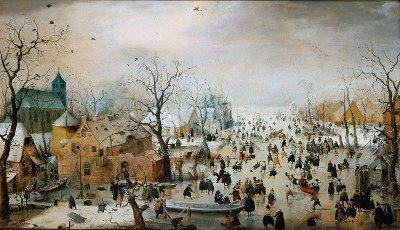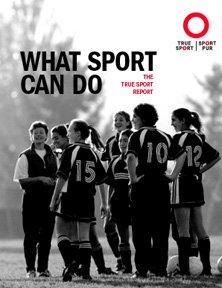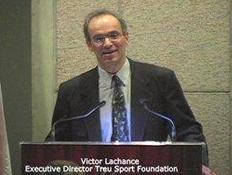In a recent CBC radio interview, a volunteer who went to Haiti to help orphaned children noted among her qualifications that she was a soccer mom, an expression sure to resonate with the fraternity of parents involved in community sport. What she sought to convey, it seems, is that the skills acquired in sport volunteerism were of the kind that transferred to other demanding and complex social situations. And yet when it comes to social innovation or community development, we do not always consider the role that community sport plays in bringing people together around a number of common interests. We do not always think of what sport does in building resilient and productive communities.

It’s not as if everyone in the sport sector agrees that community sport can meaningfully contribute to social development. And some might argue that the case for community as a social good is overstated, or at best unknown. This may be due to the discrepancy between what Canadians believe sport can do for society and how well sport is fulfilling its potential to do so. However, there is a growing and robust discussion within the sector about the intentional use of sport to improve our lives, including the power it has to give various groups, such as new Canadians, a connection to others and a sense of belonging.
We do know that sport is where most Canadians get their first exposure to volunteerism, and where we find the most volunteers. We know there are over 30,000 sport and recreation organizations spread throughout Canada, where people come together as neighbours and often leave as friends. These organizations are created and operated by people in their own community, the vast majority of which do not rely on any government funding. In the simplest sense we can observe that people belong to community sport, and community sport belongs to people.

Do we need to broaden our concept of how and where social relations develop in our communities? Are we correct to believe that community sport is a vehicle to develop the kind of face to face interactions, the shared values and the trust needed to develop social capital? I know from personal experience that sport is one place where I trade in my most valuable currency – my kids. I entrust others to look after them, in the same way as I do when they are entrusted to me, or to a soccer mom. It is a place where, notionally at least, I can have my children join others in a collective effort to fulfill our human potential. It sounds corny, I know, but as Ken Dryden has observed, sport is one of the few places where we can see how our kids interact with others.
Many of the institutions we’ve relied on for socialization have been challenged in the past few decades, whether it be the family, church or school. By design or by default, community sport is now perceived by most Canadians as second only to the family in transferring values to young people. Research also suggest that sport contributes to the development of interested and caring adults, to an ability to work with others, to a sense of acceptance and a sense of belonging to a social group. Not everyone wants to be part of that experience, but those who do tend to be part of something that matters to everyone involved.
As we consider the experiences and processes that unite us, we would do well to consider what community sport can do. A good starting point might be the True Sport Report, which looks at the many contributions that sport can make in that regard.


 Victor Lachance is the Executive Director of the True Sport Foundation.
Victor Lachance is the Executive Director of the True Sport Foundation. The editor of L'Encyclopédie de L'Agora and well known newspaper chronicler and philosopher, analyses actuality through the looking glass of Belonging.
The editor of L'Encyclopédie de L'Agora and well known newspaper chronicler and philosopher, analyses actuality through the looking glass of Belonging.